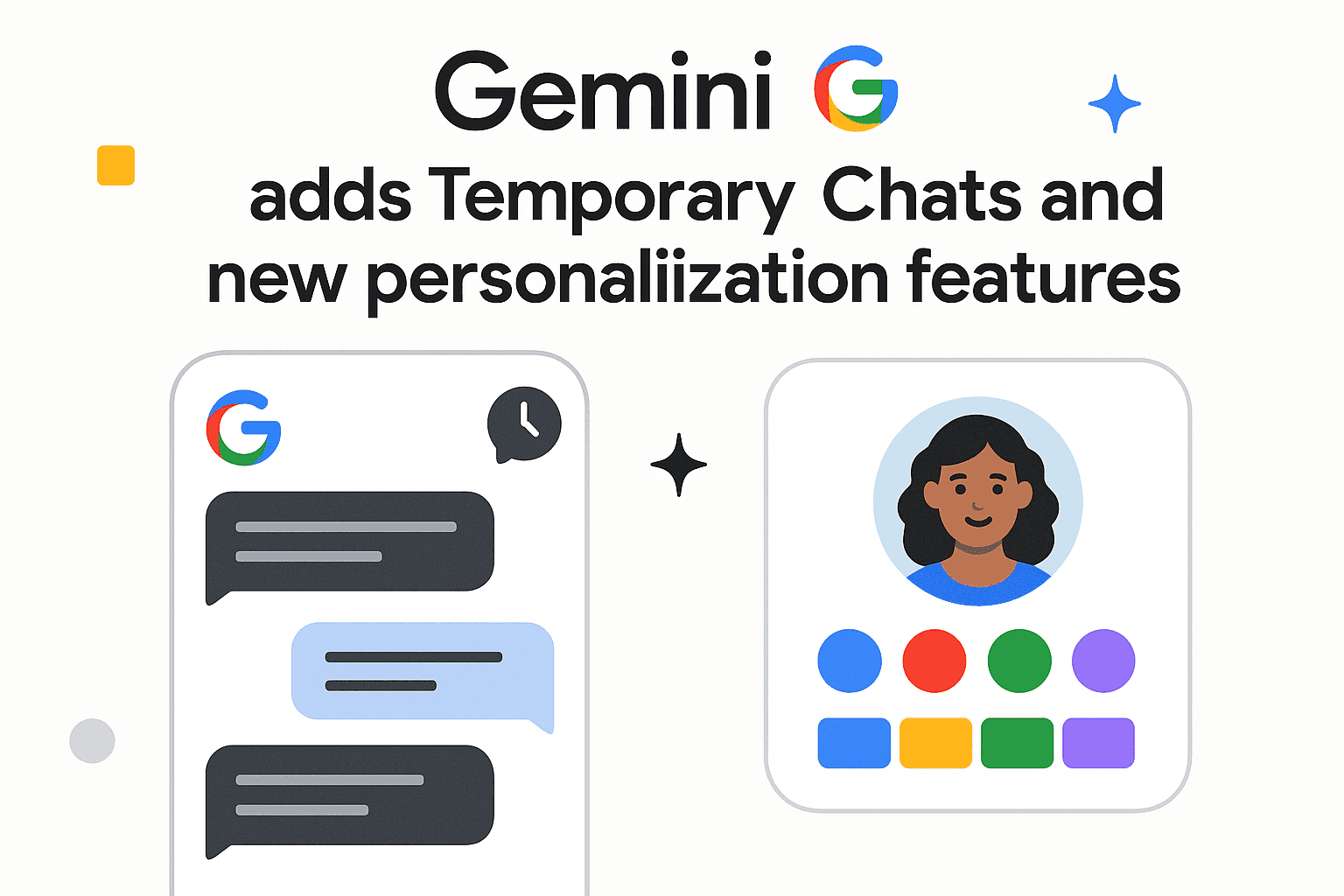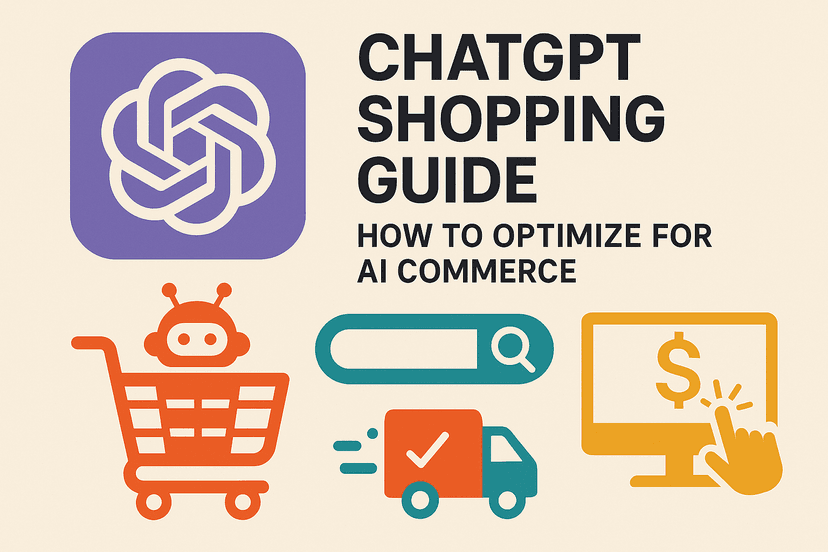Introduction
The artificial intelligence landscape continues to evolve rapidly in 2025, with Google’s Gemini AI leading the charge in creating more personalized and intuitive user experiences. The latest update to the Gemini app introduces groundbreaking features designed to make the AI assistant more responsive to individual user preferences while maintaining strong privacy controls. These enhancements represent a significant step forward in Google’s vision of creating AI that truly understands its users rather than simply responding to prompts in a generic fashion.
As we navigate an increasingly AI-integrated world, these personalization improvements to Gemini AI demonstrate how machine learning systems can become more helpful by building relationships with users over time. The update balances enhanced personalization with robust privacy options, giving users greater control over their data while benefiting from more tailored interactions.
Understanding Gemini AI
Gemini AI represents Google’s most advanced conversational AI platform, designed to serve as a personal assistant that can handle a wide range of tasks through natural language interactions. Unlike earlier generations of AI assistants that primarily responded to specific commands, Gemini is designed to maintain contextual awareness across conversations and learn from interactions over time.
The platform utilizes sophisticated large language models (LLMs) that enable it to understand nuanced requests, generate creative content, provide information, and assist with various tasks ranging from simple reminders to complex brainstorming sessions. What sets Gemini apart is its ability to integrate personal context into its responses, making it feel less like a generic tool and more like a personalized assistant that understands individual preferences.
The Gemini app serves as the primary interface for users to interact with this AI system, offering text, voice, and visual inputs to accommodate different user needs and situations. With the 2025 updates, Gemini has taken a significant leap forward in its ability to provide truly personalized assistance. For businesses looking to leverage similar technology, exploring Digital Marketing For Startups could be beneficial.
New Personalization Features
The August 2025 update introduces several key features that enhance the personalization capabilities of Gemini AI. These improvements focus on making the assistant more intuitive and responsive to individual user preferences while also providing enhanced privacy controls.
The most significant change is Gemini’s new ability to reference past conversations to build a more complete understanding of user preferences, interests, and needs. This contextual awareness allows the AI to provide responses that feel more personalized and relevant to each individual user’s situation.
Additionally, the update introduces Temporary Chat functionality for situations where users prefer one-off conversations that won’t influence future interactions. This feature addresses privacy concerns while maintaining the flexibility to use Gemini for a wide range of purposes without compromising overall personalization.
These features represent Google’s commitment to creating AI systems that adapt to users rather than requiring users to adapt to rigid AI frameworks. Such innovations have parallels in other sectors, such as Content Marketing, where tailoring strategies to audience preferences is crucial.
Learning from Past Conversations
The cornerstone of the new update is Gemini’s enhanced ability to learn from past conversations. This feature allows the AI to remember key details and preferences that users have shared in previous interactions, creating a more coherent experience across multiple chat sessions.
When enabled, this functionality means Gemini can recall information from earlier conversations without requiring users to repeat themselves constantly. For example, if you’ve previously discussed your dietary restrictions, favorite authors, or travel preferences, Gemini can incorporate this knowledge into future responses without explicitly being reminded.
This capability creates a more natural conversational flow that mimics human interaction. Just as a friend or colleague might remember your preferences from previous conversations, Gemini now maintains this contextual awareness to deliver more relevant and personalized responses.
The system is designed to identify meaningful patterns in user interactions rather than simply storing all information. This selective memory helps Gemini understand what matters to individual users and tailor its responses accordingly. The result is an assistant that becomes increasingly helpful the more you use it, as it builds a more complete understanding of your unique preferences and needs. This concept of personalization is akin to strategies used in Ecommerce Marketing, where customer behavior influences marketing approaches.
Temporary Chat Feature
Recognizing that not all conversations require personalization, Google has introduced the Temporary Chat feature to Gemini AI. This option allows users to have one-off conversations that won’t be saved to their chat history or used to influence future interactions.
Temporary Chats are particularly useful for situations where users want to explore sensitive topics, brainstorm ideas outside their usual interests, or simply have a conversation that they don’t want to impact their personalized experience. These chats remain active for up to 72 hours to allow for ongoing conversation and feedback collection before being automatically deleted.
The feature provides an important balance between personalization and privacy, giving users the flexibility to choose how each interaction should be handled. For example, a user might use standard chats when discussing their hobbies or work projects but switch to Temporary Chat when researching a sensitive health question or planning a surprise for someone who might use the same device.
This dual-mode approach ensures that Gemini can provide highly personalized experiences when desired while also respecting user privacy when needed. The implementation of Temporary Chat demonstrates Google’s commitment to providing users with granular control over their AI interactions. This level of control is essential across various industries, including Health Marketing.
Enhanced Data Control Settings
Alongside the new conversational features, Google has revamped Gemini’s data settings to give users more transparent control over how their information is used. The former “Gemini Apps Activity” setting has been renamed “Keep Activity” to better reflect its purpose.
When this setting is enabled, Google may use a sample of future uploads (including files and photos shared with Gemini) to improve its services. This data helps train AI models and enhance functionality across Google’s ecosystem. However, users who prefer not to contribute their data can easily disable this setting or use Temporary Chats when sharing sensitive information.
Google has also introduced a separate control specifically for audio, video, and screen sharing content. This setting is disabled by default, giving users the option to opt in if they wish to contribute this type of data to improve Google’s services.
These granular controls reflect an increasing industry focus on transparent data practices and user agency. Rather than applying blanket policies, the updated settings allow each user to make informed choices about how their interactions with Gemini AI are used beyond their immediate conversations. Such transparency is critical in fields like Data Security Compliance.
Real-World Applications
The enhanced personalization capabilities of Gemini AI enable more sophisticated and helpful interactions across numerous real-world scenarios. These improvements make the assistant more valuable for both everyday tasks and specialized applications.
For creative professionals, Gemini can now maintain awareness of artistic preferences and past projects, allowing it to provide more relevant suggestions for new endeavors. A filmmaker discussing their work with Gemini might receive recommendations that align with their established style while also suggesting fresh directions based on their expressed interests.
In educational contexts, Gemini can adapt its explanations based on a student’s demonstrated knowledge level and learning style. If a user has previously shown advanced understanding of mathematics but struggles with literary concepts, Gemini can adjust its explanations accordingly without requiring explicit instructions.
For everyday productivity, the personalized experience means Gemini can anticipate needs based on established patterns. If a user regularly asks for help planning meals on Sunday evenings, Gemini might proactively offer relevant assistance at those times or remember previous dietary preferences when suggesting recipes.
These capabilities transform Gemini from a reactive tool into a proactive assistant that anticipates needs based on established patterns of interaction, much like a human assistant would learn to anticipate their employer’s preferences over time. This transformative potential mirrors advancements seen in Programmatic advertising, where automation enhances decision-making processes.
Privacy Considerations
With enhanced personalization inevitably comes increased attention to privacy concerns. Google has addressed these considerations through both technical safeguards and user controls in the latest Gemini AI update.
The personalization features are designed with privacy in mind, focusing on identifying relevant patterns rather than storing complete conversation logs indefinitely. The system is engineered to maintain useful contextual awareness without unnecessarily retaining sensitive information.
For users with heightened privacy concerns, the combination of Temporary Chats and granular data settings provides multiple layers of control. This approach allows individuals to benefit from Gemini’s capabilities while maintaining comfort regarding their personal information.
Google has also enhanced transparency regarding data usage through the updated settings interfaces and the Gemini Apps Privacy Hub, which provides detailed information about how user data is handled. This transparency is crucial for building trust in increasingly sophisticated AI systems that rely on personal data to deliver improved experiences.
The balance between personalization and privacy represents one of the central challenges in modern AI development, and Google’s approach with Gemini demonstrates how these competing priorities can be reconciled through thoughtful design and user control. Similar challenges exist in sectors like Lead Generation Service, where balancing personalization with privacy is paramount.
Future Developments
The August 2025 update to Gemini AI lays the groundwork for further advancements in personalized AI assistants. While the current implementation focuses primarily on textual conversations, future developments are likely to expand these capabilities across additional modalities and use cases.
Google has indicated plans to extend the personalization features currently available in the 2.5 Pro model to their 2.5 Flash model, making these capabilities accessible to a broader user base. Geographic availability is also expected to expand in the coming weeks and months.
Industry analysts anticipate that future iterations of Gemini may incorporate more sophisticated emotional intelligence, allowing the assistant to respond not just to stated preferences but also to emotional cues and implicit needs. This could potentially include adapting communication styles based on detected user moods or adjusting responses based on the urgency or importance of different situations.
As multimodal AI continues to advance, Gemini’s personalization capabilities may extend more deeply into visual and audio interactions, creating a more holistic understanding of user preferences across different types of content and communication styles.
These potential developments highlight the ongoing evolution of AI assistants from simple command-response tools to sophisticated partners that understand and adapt to individual human needs and communication patterns. This progression is similar to the advancements in Influencer Marketing, where understanding audience sentiment drives strategy.
Conclusion
The August 2025 update to Gemini AI represents a significant milestone in the development of personalized AI assistants. By enabling the system to learn from past conversations while maintaining strong privacy controls, Google has created an experience that becomes more valuable over time while respecting user agency and preferences.
The introduction of features like Temporary Chat and enhanced data settings demonstrates a thoughtful approach to balancing personalization benefits with privacy considerations. These improvements allow users to enjoy the advantages of a highly personalized assistant while maintaining control over their digital footprint.
As Gemini AI continues to evolve, the foundation established by these personalization features will likely support increasingly sophisticated interactions that blur the line between tool and assistant. The system’s ability to understand individual preferences, remember relevant context, and adapt to different user needs points toward a future where AI systems serve not just as utilities but as genuine partners in navigating an increasingly complex digital world.
For users in 2025, these enhancements to Gemini AI offer a glimpse of how artificial intelligence can become more helpful and relevant through personalization while maintaining the privacy safeguards necessary for comfortable and confident everyday use. To stay ahead of evolving trends, exploring resources like SEO Thailand could provide further insights into optimizing digital strategies.







